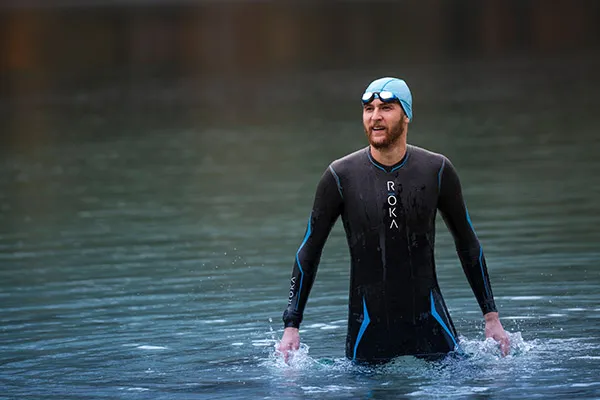5 Strategies How Athletes Can Use External Accountability For Motivation
As humans we thrive on communication and the sense of togetherness. We need to feel recognized, interact or just have someone to share our success & concerns with. External accountability, therefore, can become a powerful tool that links it all together and generates motivation to do more.
Ironically, we’ll often work twice as hard to make someone else happy than we would ourselves. Or at least to prove something.
Athletes can leverage that effect to their advantage and get better training results. Scroll down for 5 simple strategies how to include it in the training process and boost motivation.
External accountability
So, what’s an external accountability anyway?
Quite literally it means being obliged to meet certain expectations or report to someone. It can come from having relationships or agreements with others and is based on such values as respect, integrity, reliability & trustworthiness.
In other words, being accountable to others means respecting them and being true to your commitments.
That’s totally different to being accountable internally (to oneself) where a person is driven by his own values and ambitions.

Simple strategies how athletes can use external accountability
Having ambitions and being true to yourself is very powerful. But let’s be real – not everyone has an army-like discipline or willpower of steel. Everyone experiences moments of weakness from time to time and struggles with motivation to do the right thing.
Some people in general take a more relaxed approach to life. If nobody’s watching – why not take a shortcut, eh?
Having your word on the line or having someone you don’t want to let down is a great way to boost motivation when you’re not feeling like it. And often that’s all that’s needed to remain consistent.
There are various ways to make that happen and, depending on the personality, different athletes will respond better to a different strategy.
Related: How To Become A Better Athlete – 38 Practical & Useful Tips
Strategy #1 – make a bet
One ridiculously easy and, probably, the simplest way of motivating oneself is to make a bet with someone. On top of having someone to account to, people will often do everything not to lose money. Compared to earning extra.
Have you ever heard of someone struggling to adapt a healthy habit or lose weight for years and then suddenly doing that in a matter of months after betting a friend $100?
When real money is at stake things change. Everyone seems to discover a hidden talent to make things happen. People suddenly get productive, organized and can focus better.
After getting into a bet with someone, going out for a run in the rain is not a problem anymore. Or waking up early. Or saying no to fast food.

The Resilient Athlete
A Self-Coaching Guide to Next Level Performance in Sports & Life
Are you aiming to become a resilient athlete who is able to withstand any pressure? Be able to jump on any opportunity? Take any challenge life throws at you head on?
Then this book is for you.
Learn moreStrategy #2 – share your journey with others
A great way to become accountable to others is to let them follow your progress. It can serve as a great motivator to remain consistent and follow up on your ambitions.
Start a public blog and post consistently in it. It can be a photo blog of your visual transformation (i.e. Instagram) or just a written account of your training progress.
Sharing your journey with others or just making it public may seem scary at first. Am I worth it? How will people react? What if they make fun of me? But those fears are just that – fears. Nothing more.
State your ambitions to others. Be ready for and allow them to challenge you and see the magic happening.
Involving others in your journey makes it more than just you. Thousands of people who go through the same problems and are looking for like-minded people to associate themselves with. Who knows whom you’ll inspire to do more?
In fact, I created this blog to help me stay consistent while training for my first marathon. Getting lots of questions and encouragements motivated me to continue posting.
Strategy #3 – find training partners
Having a partner to train with or a group is by far the most effective way how to leverage the power of external accountability.
Training group is an environment where people are expected to follow a set of norms and behave in a certain way. Generally, that’s focused on not missing training sessions and helping each other grow & improve.
Take any sports team as an example (football, basketball – doesn’t matter). Having teammates alongside is what pushes these athletes to show up and put in the hard work. To not let their team down.

For some it can be a sense of community that drives success. Doing something together, building friendships or just spending time with like-minded people doing things they enjoy. If someone skips a session or has an unhealthy snack it’s the peer pressure that puts them back on track.
For others it’s the challenge, competition or recognition that is more important. Becoming better than others and not willing to lose their respect can be a very strong motivator for these athletes.
Strategy #4 – hire a coach or find a mentor
Hiring a coach or having a mentor is important to bring more structure and seriousness to the training process. But besides that, being accountable to someone who believes in you is a powerful motivator. Often we don’t want to let down these people more than we do ourselves.
Both a mentor and a coach are invested in your success as an athlete and a personality. They want you to become the best version of yourself and are willing to offer their time, knowledge and experience to achieve that. The only difference is that a mentor selects few talents he wishes to support and does it voluntarily. The coach gets paid for that.
Are you looking for a coach or a training program? Click here to read about my methodology and get in touch.
Strategy #5 – sign up for a race or adventure
Signing up for an adventure doesn’t necessarily involve other people. Unless you join a group or blog about it, of course. But it doesn’t mean it’s less powerful. Think how great it sounds – trekking in the Himalayas, running a marathon or even completing an obstacle race. Personally, just thinking about it makes the blood in my veins run faster.
That’s because having something exciting on the horizon utilizes the same principle external accountability does. It brings the motivation from the outside in. A specific deadline makes the commitment real and non-negotiable and that’s the magic of it.
It’s a great strategy for those who need some accountability in their life, but aren’t ready to go public with it yet.
Did you find this information useful? Share the post with others using the buttons below.
Tags In
Andrejs
Related Posts
Leave a Reply Cancel reply
GET A FREE TRAINING PLAN
Subscribe to my email list and get access to a free 4-week “back in shape” training plan
You’ll also get two full-body strength sessions and some other goodies!

How did I get here?
Hey there! My name is Andrejs and I am here to inspire, entertain and get you fit for any adventure.
I went from being an over trained pro athlete to an endurance coach sharing how to listen to your body and live life to the fullest.
Traveling, new sports & activities brought new meaning to my training and made it much more effective, fun and enjoyable. And I'm here to help you do the same.


